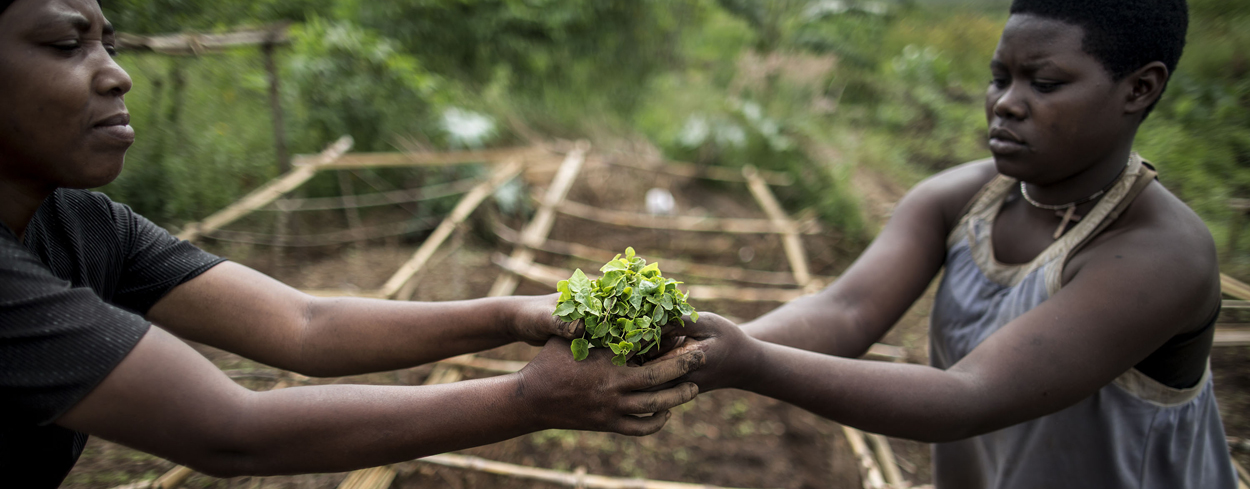
Strengthening pandemic prevention and response through the One Health approach in Rwanda
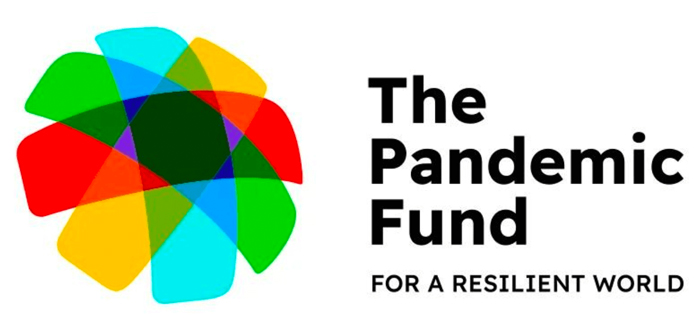
Rwanda’s commitment to strengthening its health security is underscored by its proactive approach to addressing zoonotic diseases, antimicrobial resistance, and emerging infectious threats. Through this initiative, the country aims to enhance its pandemic preparedness by building an integrated One Health system that bridges human, animal, and environmental health, ensuring sustainable health outcomes.
Implementation and key components
Led by FAO, WHO, UNICEF, and the Asian Infrastructure Investment Bank (AIIB), the project works closely with Rwanda’s Ministry of Health, Ministry of Agriculture, and the Rwanda Biomedical Center to implement an integrated response to pandemic threats.
Enhancing disease surveillance and early warning systems
The project will integrate human, animal, and environmental health monitoring into a unified system, improving early detection of zoonotic and antimicrobial resistance (AMR) threats. Rwanda’s electronic reporting systems will be modernized, and wildlife monitoring incorporated to address critical gaps. Enhanced training for health workers and expanded community engagement efforts will bolster surveillance in underserved areas, ensuring rapid response to emerging threats.
Strengthening laboratory systems
Investment in laboratory infrastructure will include upgrading and constructing biosafety-level labs and implementing robust quality management systems. These enhancements aim to boost Rwanda’s capacity for advanced molecular diagnostics and pathogen genomic sequencing. Improved specimen transport networks and continuous training for laboratory staff will ensure high-quality, timely diagnostics across the country.
Building workforce capacity
To ensure long-term preparedness, the project will develop a skilled workforce equipped to address pandemic challenges. Health professionals will receive advanced training through programs like the Field Epidemiology Training Program (FETP) and Global Laboratory Leadership Program (GLLP). Curricula focused on wildlife health and veterinary public health will be introduced, alongside targeted training for community health workers, ensuring preparedness at every level of the health system.
Expected outcomes
This project will establish an integrated surveillance and laboratory network capable of detecting and responding to public health threats. By fostering a multidisciplinary and gender-sensitive workforce, Rwanda will improve compliance with the International Health Regulations (IHR 2005) and strengthen its Joint External Evaluation (JEE) and Performance of Veterinary Services (PVS) scores. The initiative is expected to reduce the socio-economic impact of future outbreaks while building a resilient health system ready to address global health security challenges.
Implementing Entities
AIIB, UNICEF, WHO
Priority areas
- Early warning and disease surveillance systems
- Laboratory systems
- Human resources/public health and community workforce capacity
Total budget
USD 24,963,101
Total co-financing
(in kind and cash)
USD 5,826,220
Total co-investment
(in kind and cash)
USD 154,000,000
Find out more
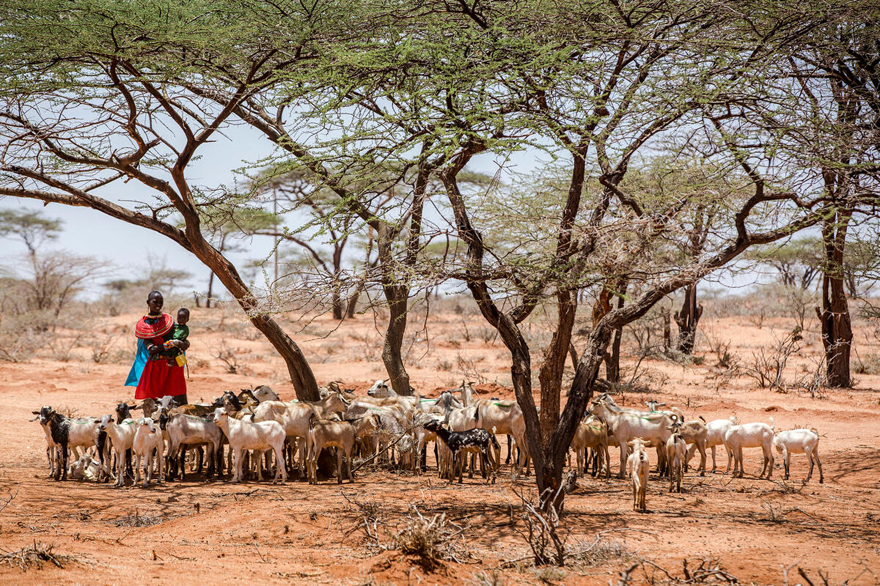
Projects
The Pandemic Fund
FAO is co-leading the implementation of 32 Pandemic Fund projects worth over USD 165 million aimed to boost local and global health security.
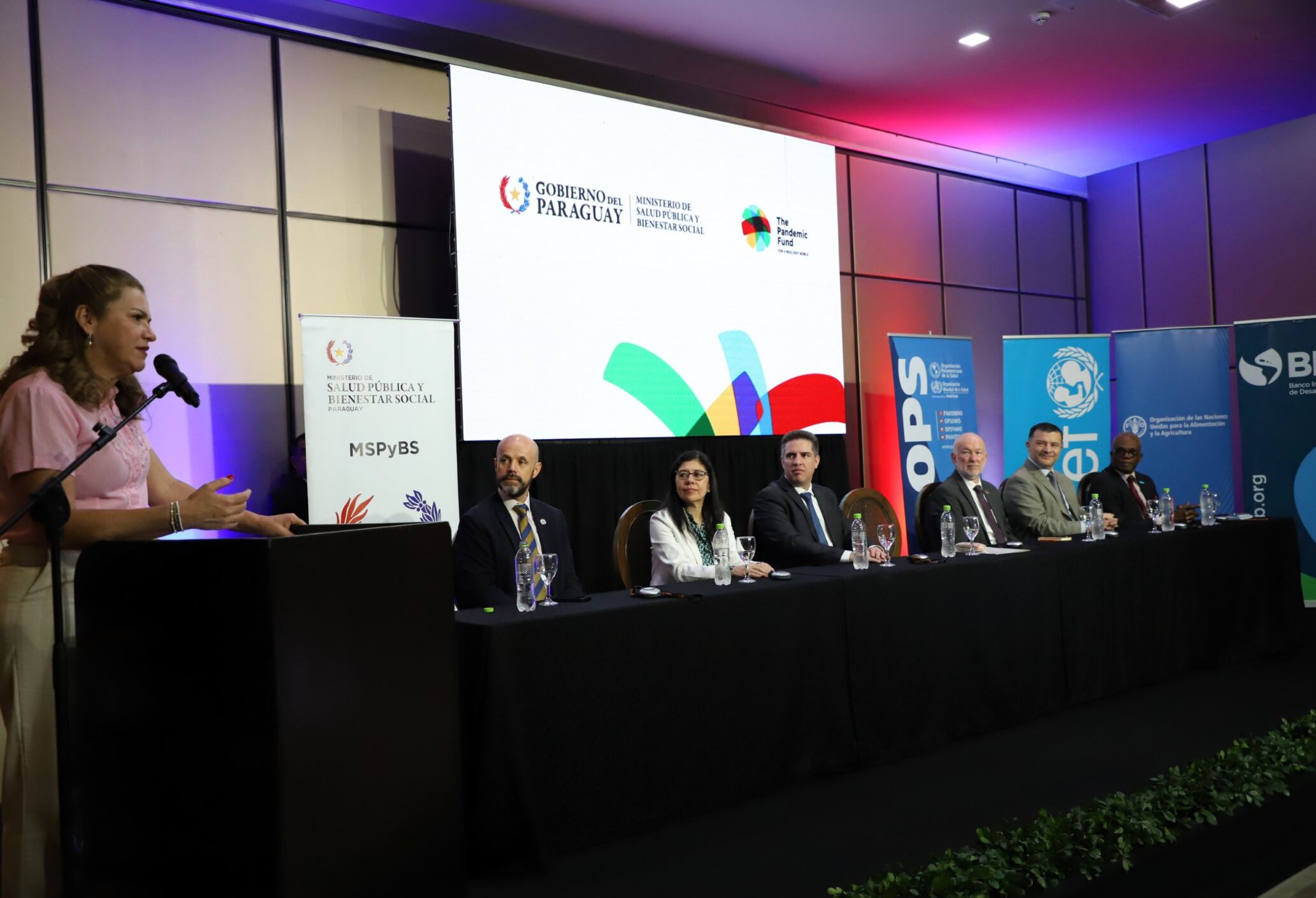
Highlights
Global fight against pandemics gains momentum as projects launch with FAO support
The first of Pandemic Fund projects launched at national level, including Ethiopia, Paraguay, Central Asia countries, and Yemen.
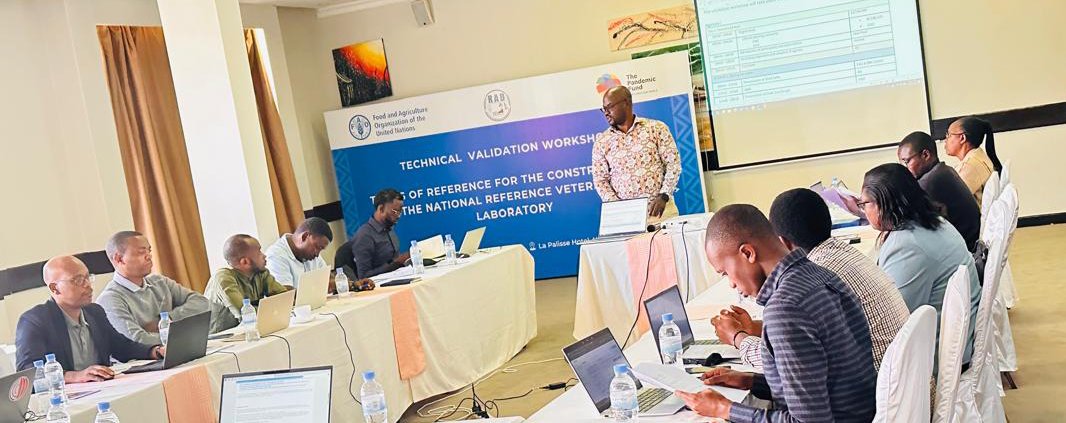
Highlights
Rwanda advances plans for state-of-the-art National Reference Veterinary Laboratory
Rwanda validates key step towards building a national reference veterinary laboratory to strengthen animal health and pandemic preparedness.
